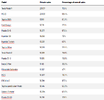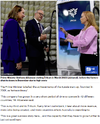- Joined
- 26 March 2014
- Posts
- 20,270
- Reactions
- 13,022
Nothing to do with government, market forces.
The reason that EV sales are pitiful here so far is because other governments have introduced vehicle efficiency and emission standards that favour EV's while our government has been dragging their feet.


 Can't wait to show my car loving mate that has a 20 car collection that includes a Ferrari, Monaro's and drives an EV during the week and a RAM when on site.
Can't wait to show my car loving mate that has a 20 car collection that includes a Ferrari, Monaro's and drives an EV during the week and a RAM when on site.



